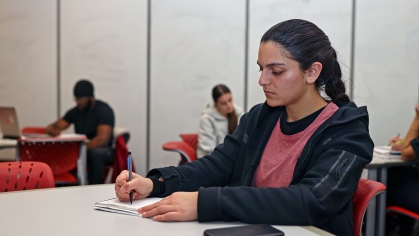Applying to Graduate or Medical School
The process of applying to any graduate school is long, tedious, and stressful. Because I have gone through the process of applying to both medical schools and graduate schools, I felt it could be helpful for me to share advice I have either received or found out on my own in regards to what to do and what to avoid.
From this point on, I will be sharing my personal experience with applying to medical school. However, many of the tips I will cover are applicable for applying to graduate schools in general.
In this post, I will not be going into a specific, detailed plan of what you should be doing each semester or each summer of your college career. However, to give you a general idea, I know that some people use a timeline provided by the AAMC (Association of American Medical Colleges). The AAMC runs the AMCAS (American Medical College Application Service).
Let’s get into tips that can save you time and help you when applying.
Be Organized
When I was going through the process of researching medical schools (and graduate schools), I organized all of the important information by school on a spreadsheet. I noted the requirements for each school including the following supplemental information requests, pre-requisite requirements, and the deadlines.
While this depends entirely on the applicant, most students apply to more than one school (in fact, a lot of undergraduates usually apply to 5-8 different schools and I have even had friends who applied to upwards of 15 schools). Even if you choose not to use a spreadsheet, please utilize some tool to keep yourself organized because the applications vary for each school.
Be Aware of Deadlines
Deadlines are different for medical schools. While a deadline is technically the last day you can submit your application to be reviewed, your chances of getting an interview/acceptance are a lot lower than if you submit your application well in advance of the deadline. Most schools participate in rolling admissions (first come, first serve), so ideally, as soon as you are ready (after editing and proofreading), forward it to the school.
Write a Solid Personal Statement.. And Move On
The personal statement worries many students when it really should not. It's important to explain why you are applying and why you think you will make an excellent physician. But don't obsess over it. I have witnessed many peers delay sending their applications because they wished to continue editing/revising their statements. However, having spoken to several admissions counselors, the general consensus is to review your statement, ensure it is well-written, and then send it. Because the application cycle is rolling, applicants are better off just sending their personal statement in. Also, while a poorly written essay will take away from the quality of your overall application, a well written essay really just moves your application onto the next round. Of course, there are exceptions and if you really do have a fantastic story to share with the admissions committee, please do. But for most students, the personal statement should simply be an opportunity to express an interest in medicine.
Send Supplemental Information In Advance
Supplemental information can be anything a school asks for when you send in an application. Often schools will not say this, but they may hold your application and not review it until they have received absolutely everything from you. So, items like transcripts, letters of recommendations, and test scores must be sent ahead of time.
Do not wait to send anything longer than you have to. I understand that the MCAT must be scored and the semester needs to end before you can send your transcripts along, but as soon as the material is available, pass it along. Double-check this with each of your schools to make sure that it is okay to send the supplemental material in separately.
Contact Letter Writers Early
Finding and choosing your letter writers is a tough process, but there are things you can do to make it easier. First, ask for letters from people you believe can/will write you a strong letter. You want your letter of recommendation to include more than just what grade you got in a course or that you volunteered for x amount of hours. Ideally, the letter writer should know at least a little bit of who you are, why you are interested in medicine, and whether or not you will be a good fit based on what they have seen.
When you have figured out who to ask, be sure to ask politely and to give your writers enough time to write. You will have much more success when you ask for a letter months in advance than if you ask for a letter a week in advance.
At Rutgers, the HPO (Health Professions Office) is a great resource in helping undergraduates with letters. Basically, the HPO will compile your letters into a single document to be sent out to schools. Right now, the HPO asks for at least five letters of recommendation (at least two from Rutgers science professors and one from a Rutgers non-science professor). After receiving all of your letters, the HPO will schedule you for a committee interview and after the interview; they will write you a cumulative letter that will be sent out to all of the schools you are applying to. The letter will include information from your letter writers as well as the HPO advisor that interviewed you. If you are interested in applying to osteopathic medical schools, a letter from an osteopathic physician (DO) is also recommended.
Interviews
There are two great resources at Rutgers for interview preparation. The HPO actually requires its students to undergo a committee interview in which they will ask you questions as if they were at an actual medical school interview. Career Services also offers mock-interviews for students.
Be prepared to answer questions regarding weaknesses in your application (this could range from a low course grade to a low MCAT sub score). Be ready for questions on ethics and current events in healthcare and medicine.
The best thing you can do is practice, practice, practice. Think of what questions you could possibly be asked and prepare for them. I was told to be sure to convey a passion for medicine/healthcare and allow the interviewer to gain insight into who you are as a person (after all, that is why they are inviting you in).
Wrap-Up
If you have read this far, you should have a better sense of what to do or at the very least, which resources to pursue. Again, all of the information I have presented is advice I have received from admission counselors or personally found to be helpful during my own application cycles. Down below, I will leave links that I have found beneficial before, during and even after the application process. Best of luck and keep working hard!


